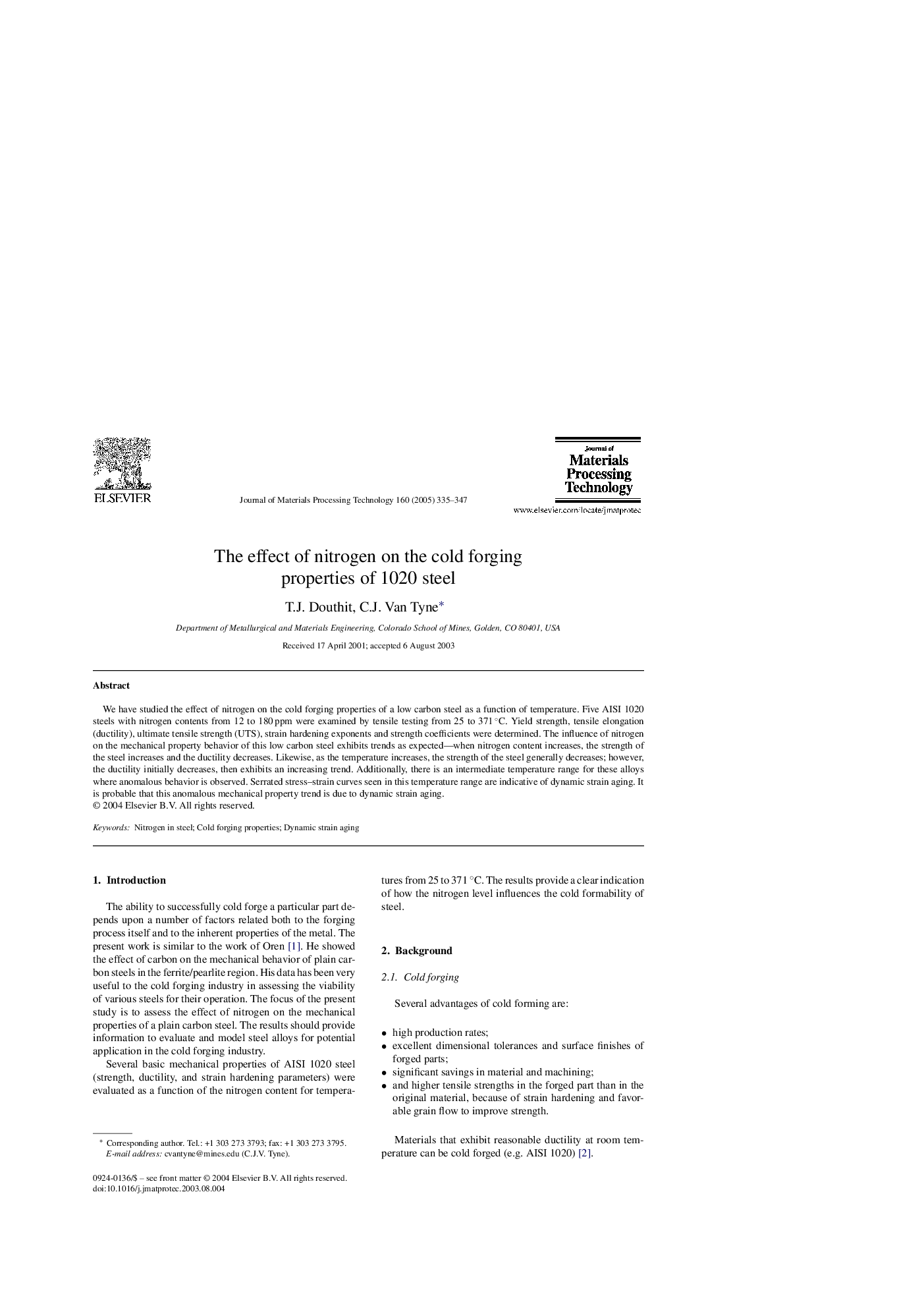| Article ID | Journal | Published Year | Pages | File Type |
|---|---|---|---|---|
| 9709207 | Journal of Materials Processing Technology | 2005 | 13 Pages |
Abstract
We have studied the effect of nitrogen on the cold forging properties of a low carbon steel as a function of temperature. Five AISI 1020 steels with nitrogen contents from 12 to 180 ppm were examined by tensile testing from 25 to 371 °C. Yield strength, tensile elongation (ductility), ultimate tensile strength (UTS), strain hardening exponents and strength coefficients were determined. The influence of nitrogen on the mechanical property behavior of this low carbon steel exhibits trends as expected-when nitrogen content increases, the strength of the steel increases and the ductility decreases. Likewise, as the temperature increases, the strength of the steel generally decreases; however, the ductility initially decreases, then exhibits an increasing trend. Additionally, there is an intermediate temperature range for these alloys where anomalous behavior is observed. Serrated stress-strain curves seen in this temperature range are indicative of dynamic strain aging. It is probable that this anomalous mechanical property trend is due to dynamic strain aging.
Keywords
Related Topics
Physical Sciences and Engineering
Engineering
Industrial and Manufacturing Engineering
Authors
T.J. Douthit, C.J. Van Tyne,
